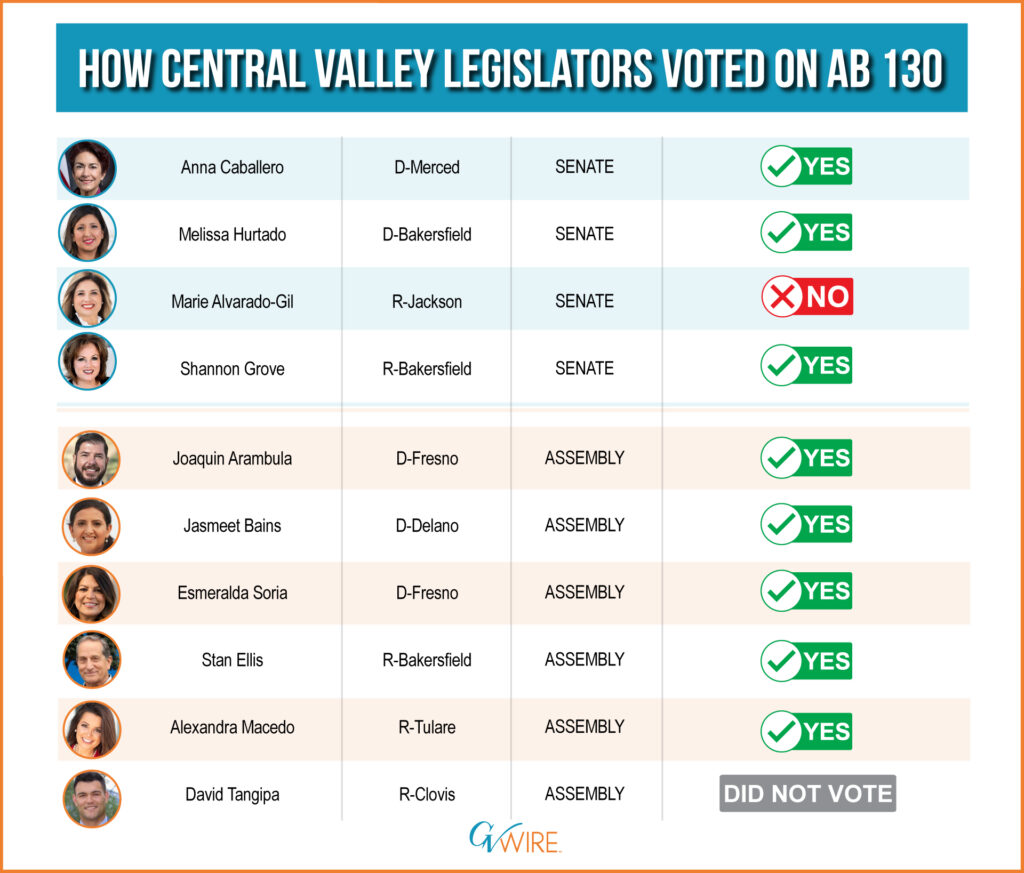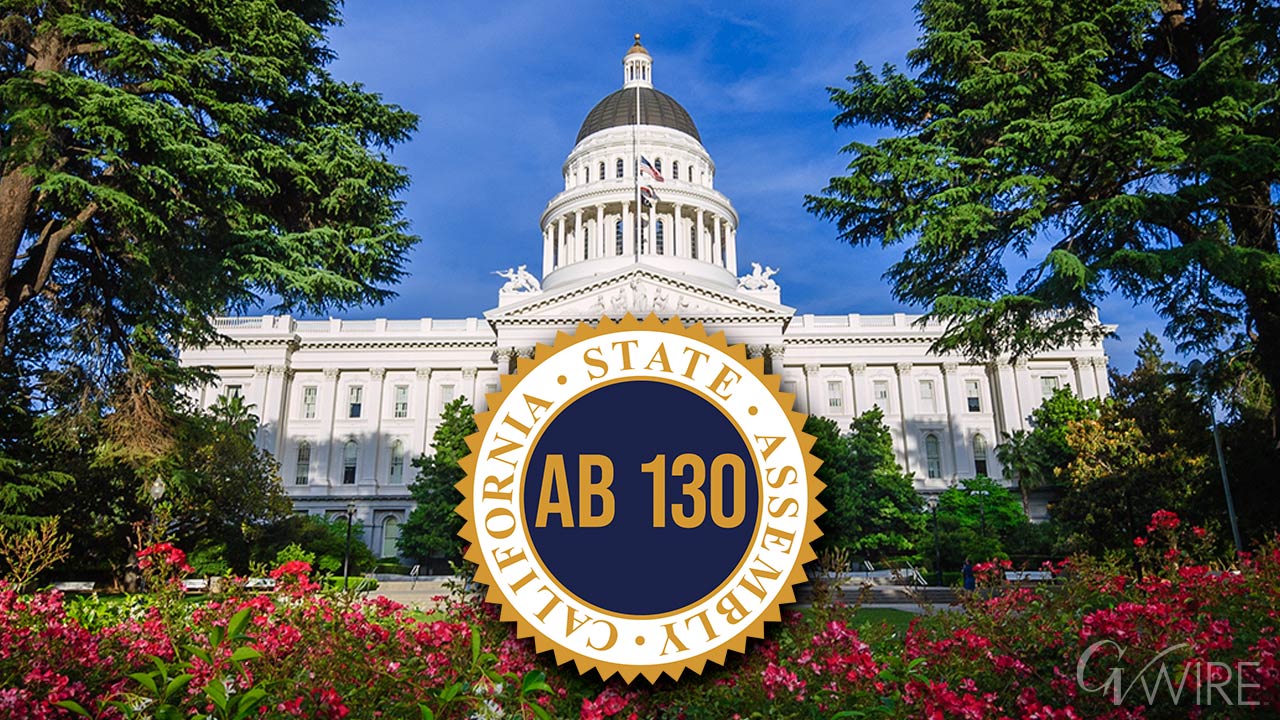Nearly all Central Valley state lawmakers voted in favor of AB 130, which expands how cities can use Vehicle Miles Traveled fees and changes California’s environmental review laws. (GV Wire Composite)

- Nearly all Central Valley lawmakers voted for AB 130, a housing bill signed by Gov. Gavin Newsom on June 30.
- The new law lets cities use Vehicle Miles Traveled (VMT) fees to help fund affordable housing projects.
- Critics say it removes community input, adds bureaucracy through a new mitigation fund, will raise the price of new market-rate homes.
Share
Nearly the entire Central Valley delegation in Sacramento — Democrats and Republicans — voted for a housing measure that some experts say could drastically increase costs.
Supporters, such as state Sen. Shannon Grove, R-Bakersfield, said the bill will help increase housing stock.
The bill, AB 130, builds on the state’s existing environmental laws for new housing developments. The state already calculates how much in fees and taxes builders pay through a system called Vehicle Miles Traveled, or VMT.
Signed by Gov. Gavin Newsom on June 30, the bill allows cities to use VMT fees to help fund affordable housing construction. It also makes changes to CEQA, the state’s environmental review law for building projects.
Originally a nearly blank budget trailer bill in January, AB 130 was later amended with language on prevailing wage rates for housing projects, followed by a June 24 amendment outlining how VMT funds can be used.
State Sen. Melissa Hurtado, D-Bakersfield, explained her vote.
“Without any district specific opposition, and with the bill originating from the Budget Committee itself, there often just isn’t a reason to not vote for it,” she said through a spokesperson.
Sen. Marie Alvarado-Gil, R-Jackson, was the only member of the delegation to vote no. She said the bill removed community voting on housing projects, reduced transparency, and decreased local autonomy.
“AB 130 included a significant number of policy changes pulled from various Democrat proposed bills that were not necessary to implement the 2025 Budget Act, in other words, legislation via the budget process,” Alvarado-Gil said.
She called the mitigation fund “unnecessary, creating another layer of state bureaucracy which I was vocal about on the Senate floor. This alone was enough reason to vote no in addition to the other previous mentioned factors.”

Tangipa Opposes the Process
Assemblymember David Tangipa, R-Clovis, opposed the way trailer bills are presented — filled in only days before a vote. He declined to vote.
“The fourth largest economy in the world should not function like that,” Tangipa said.
He also had issues with the way the bill dealt with VMT.
“We didn’t have the proper time to deliberate on what was necessary, we didn’t have clarity on what the VMT bank was, even though we waved the flag of CEQA exemption, which is supposed to streamline the process, and I don’t think that we’re doing the people justice in California when this is the way the process is being done,” Tangipa said.
He added that the VMT process in AB 130 “doesn’t make housing more affordable. It just expedites the process by removing CEQA requirements on infill housing.”
Grove Explains Vote
Grove, who sits on the Senate budget committee, explained her vote. She asked for her full statement to be published.
“I voted in favor of AB 130 alongside my Central Valley colleagues to address California’s critical housing crisis. This bill takes meaningful steps to reduce barriers to home construction and provide some financial relief to homeowners.
“Under this new law, the maximum HOA fine is limited to $100 per violation, saving homeowners money and prevents excessive penalties. The bill also streamlines development by expanding CEQA exemptions for essential housing projects, including single-family homes, multi-family communities and farmworker housing.
“AB 130 creates a statewide Vehicle Miles Traveled (VMT) bank as an optional tool for developers, allowing them to purchase credits to mitigate traffic impacts and secure CEQA exemptions for their projects, further simplifying the approval process.
“Additionally, the six-year pause on new state building standards will allow for more certainty in the home construction industry. Most importantly, this law eases the CEQA process, creating a less burdensome path to increasing our housing supply and tackling California’s housing crisis head-on,” Grove said.



















